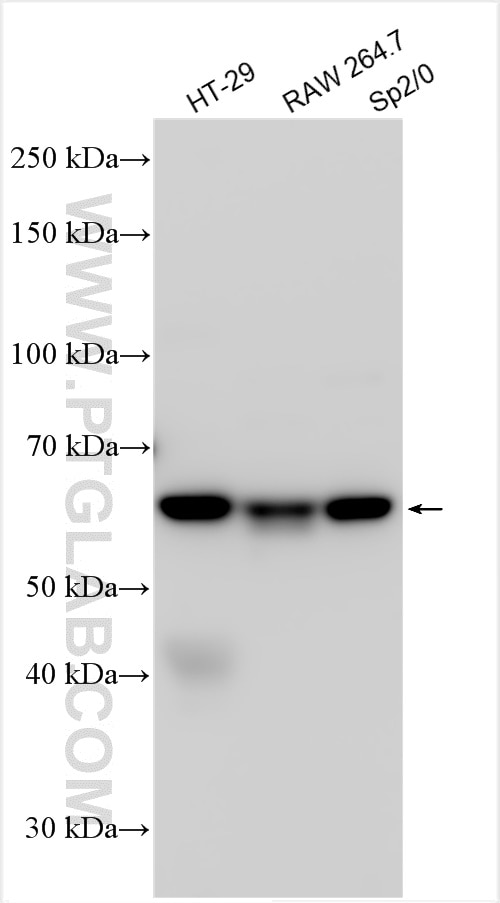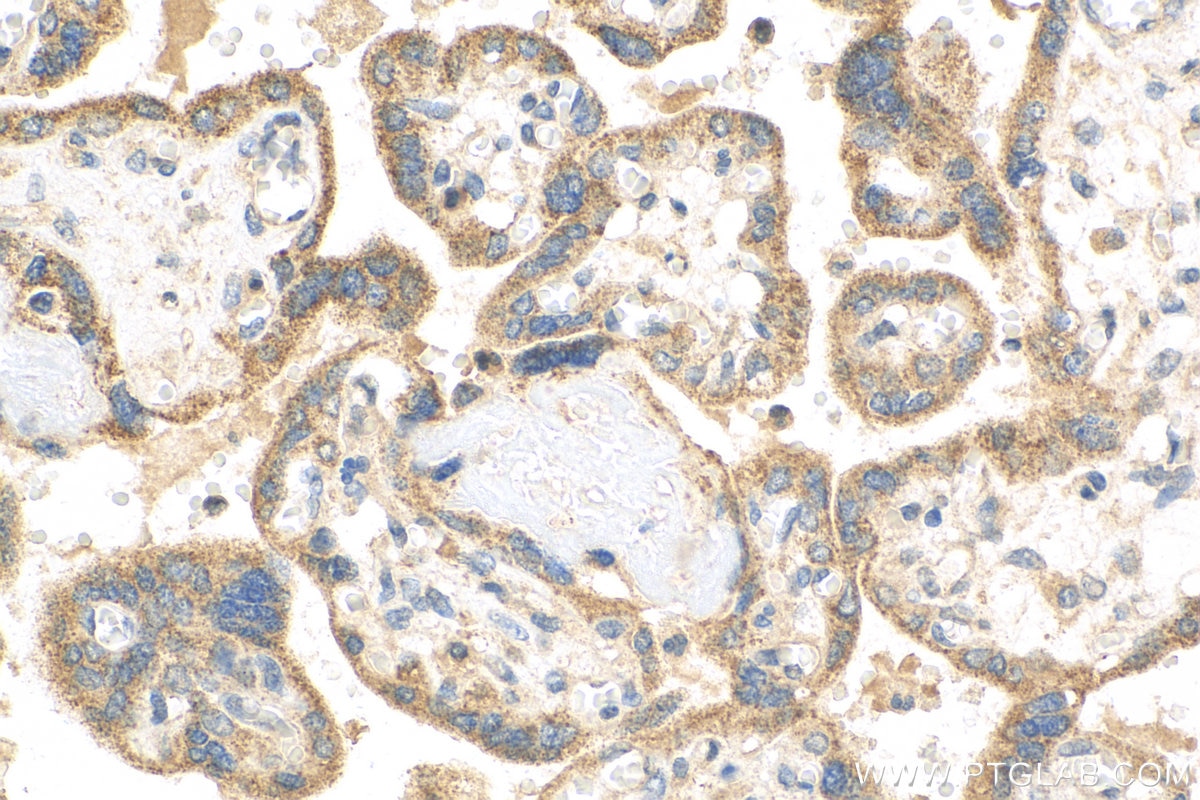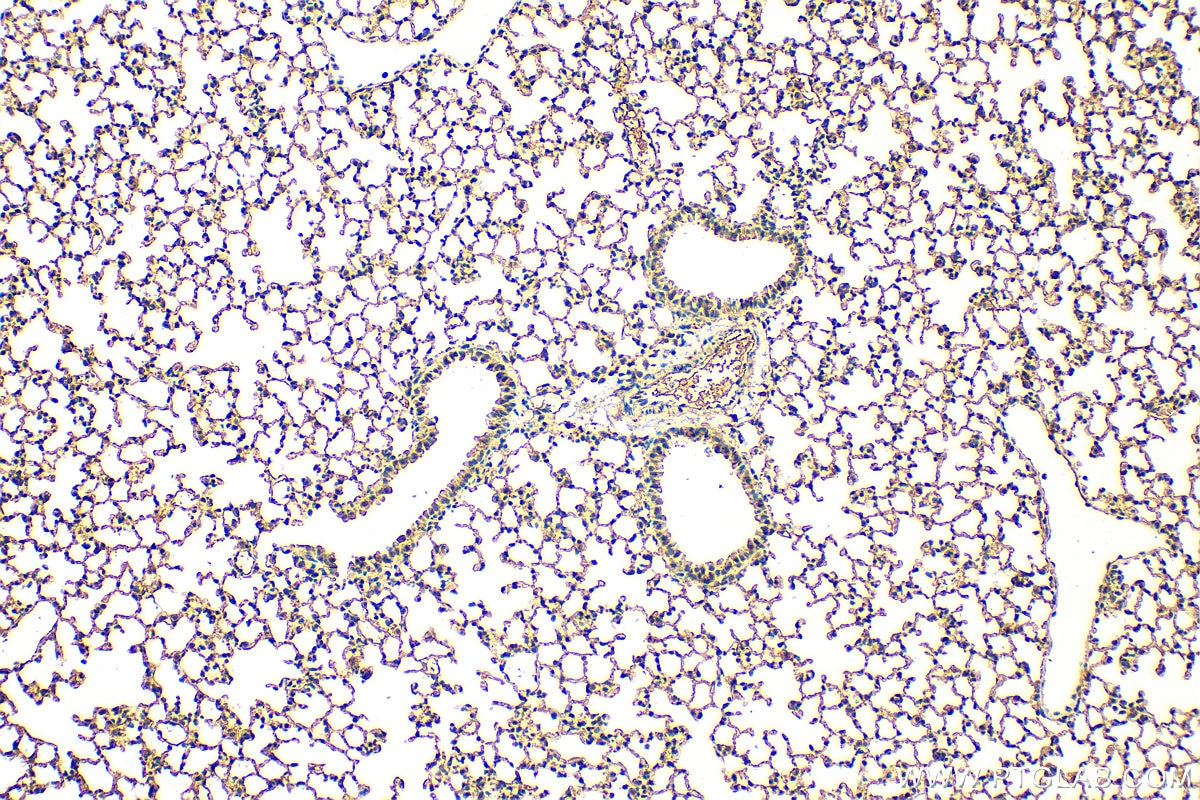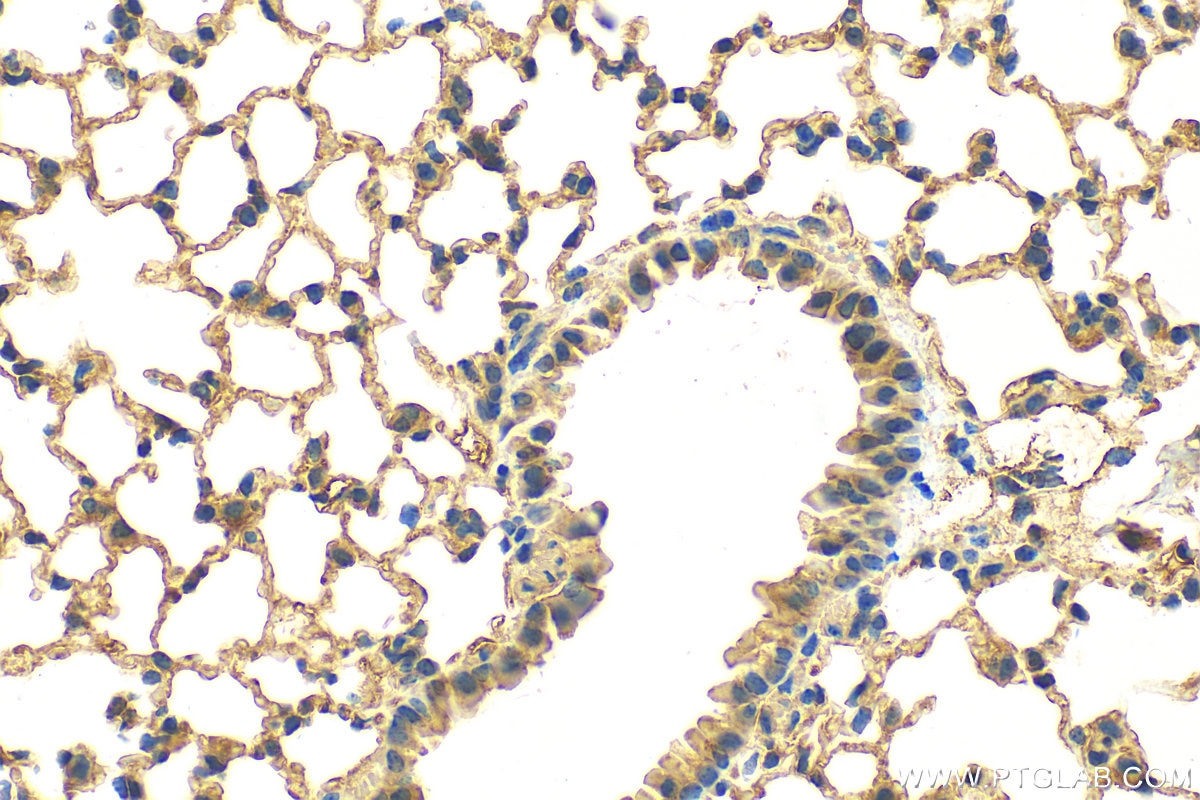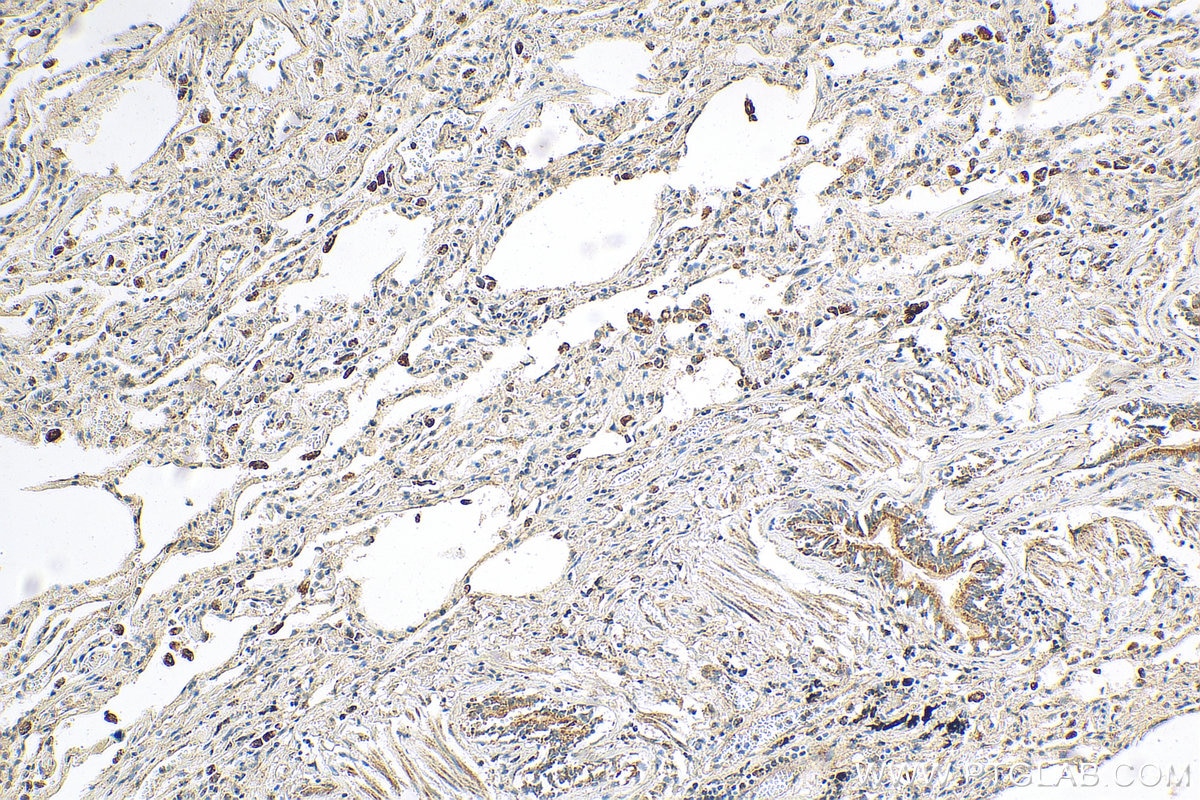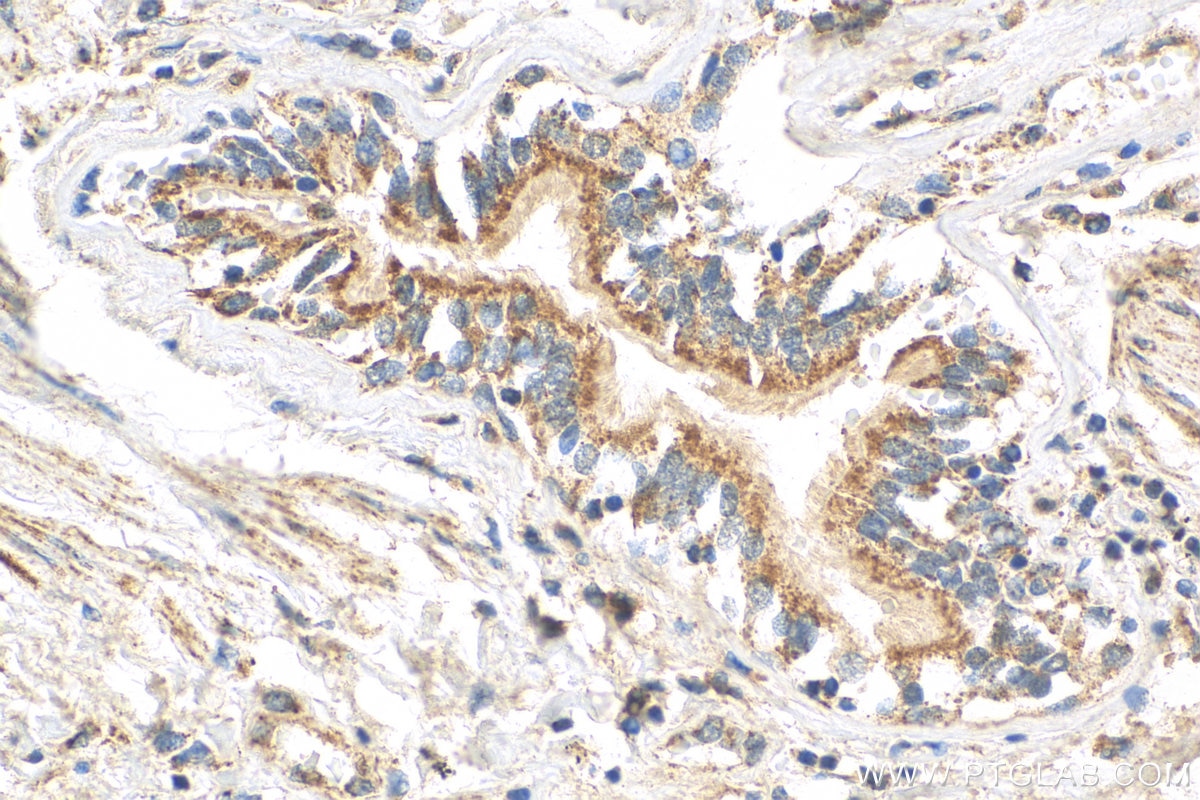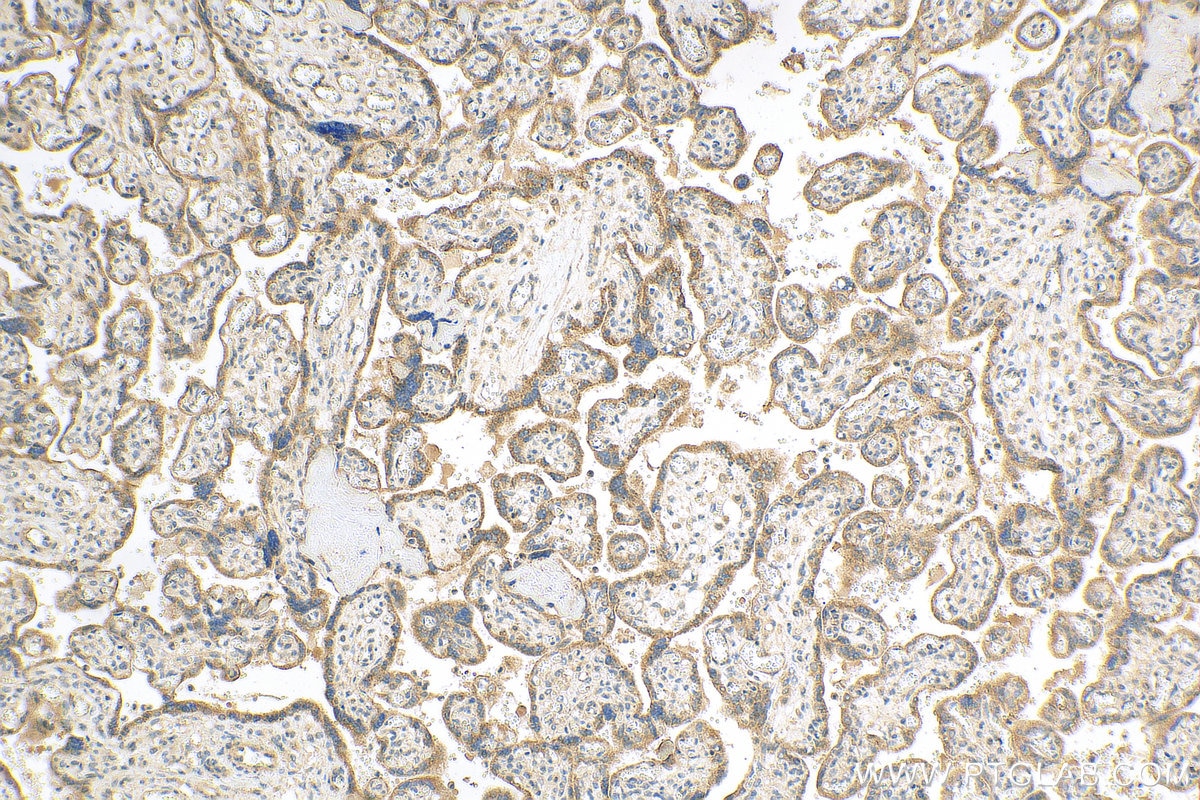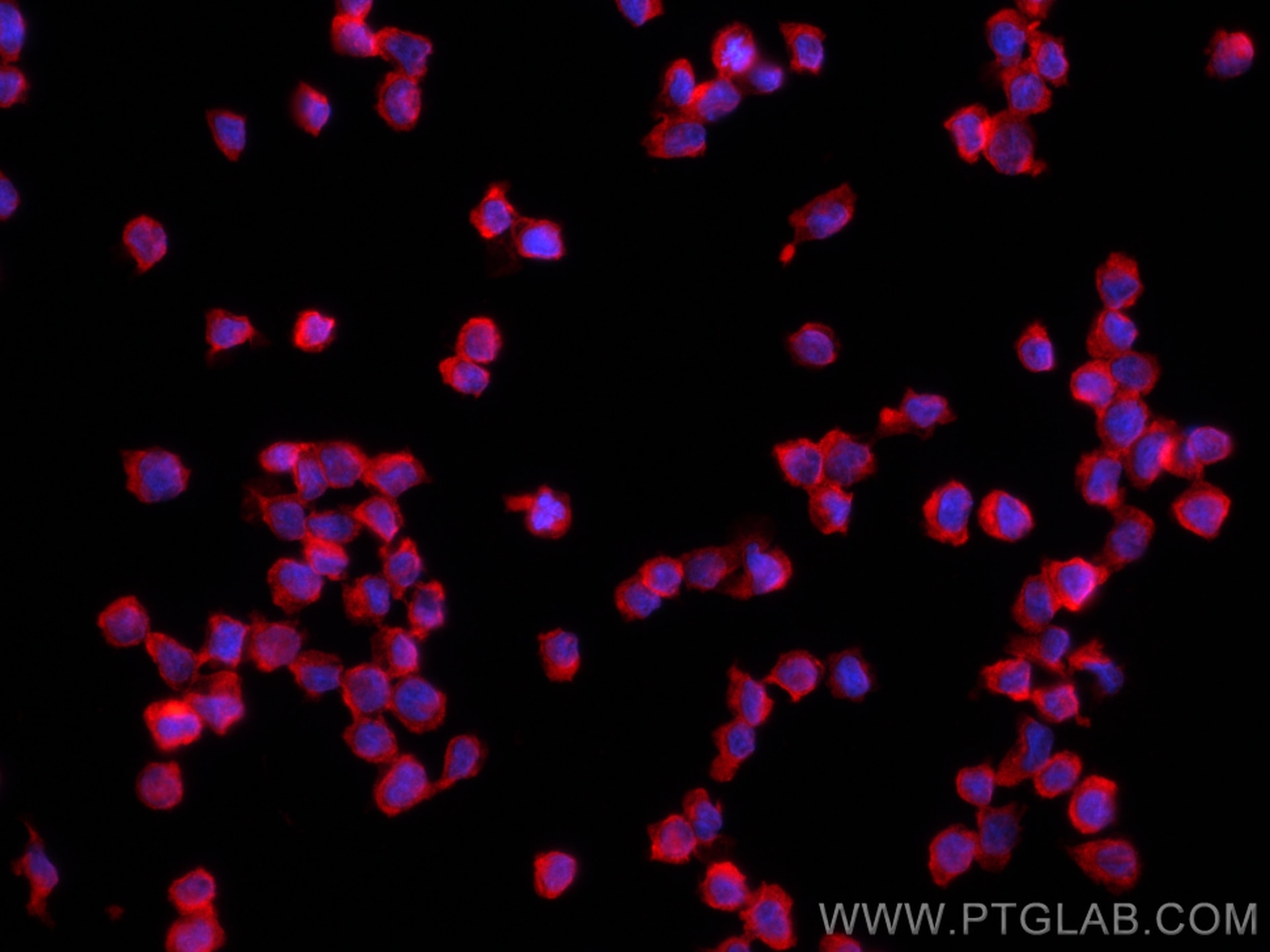Tested Applications
| Positive WB detected in | HT-29 cells, RAW 264.7 cells, Sp2/0 cells |
| Positive IHC detected in | human placenta tissue, human lung tissue, mouse lung tissue Note: suggested antigen retrieval with TE buffer pH 9.0; (*) Alternatively, antigen retrieval may be performed with citrate buffer pH 6.0 |
| Positive IF/ICC detected in | THP-1 cells |
Recommended dilution
| Application | Dilution |
|---|---|
| Western Blot (WB) | WB : 1:1000-1:6000 |
| Immunohistochemistry (IHC) | IHC : 1:50-1:500 |
| Immunofluorescence (IF)/ICC | IF/ICC : 1:50-1:500 |
| It is recommended that this reagent should be titrated in each testing system to obtain optimal results. | |
| Sample-dependent, Check data in validation data gallery. | |
Published Applications
| WB | See 10 publications below |
| IF | See 2 publications below |
Product Information
29958-1-AP targets cGAS in WB, IHC, IF/ICC, ELISA applications and shows reactivity with human, mouse samples.
| Tested Reactivity | human, mouse |
| Cited Reactivity | human, mouse, rat |
| Host / Isotype | Rabbit / IgG |
| Class | Polyclonal |
| Type | Antibody |
| Immunogen | cGAS fusion protein Ag31677 Predict reactive species |
| Full Name | RIKEN cDNA E330016A19 gene |
| Calculated Molecular Weight | 58 kDa |
| Observed Molecular Weight | 58 kDa |
| GenBank Accession Number | BC145651 |
| Gene Symbol | cGAS |
| Gene ID (NCBI) | 214763 |
| RRID | AB_2935491 |
| Conjugate | Unconjugated |
| Form | Liquid |
| Purification Method | Antigen affinity purification |
| UNIPROT ID | Q8C6L5 |
| Storage Buffer | PBS with 0.02% sodium azide and 50% glycerol pH 7.3. |
| Storage Conditions | Store at -20°C. Stable for one year after shipment. Aliquoting is unnecessary for -20oC storage. 20ul sizes contain 0.1% BSA. |
Background Information
cGAS (cyclic GMP-AMP synthase) is a cytosolic DNA sensor that serves to mount an immune response against the invasion of microbial pathogens such as viruses. cGAS normally resides as an inactive protein in the cell. Upon binding to DNA, cGAS undergoes a conformational change to an active state and produces the second messenger cyclic GMP-AMP (cGAMP) from ATP and GTP, which is subsequently detected by the cyclic-dinucleotide sensor STING, an ~40 kDa dimeric transmembrane protein at the endoplasmic reticulum (ER). cGAS not only is found in the cytosol but has a multifaceted cellular distribution that involves localization at the cell membrane and in the nucleus (PMID: 32424334). The calculated molecular weight of cGAS is 58 kDa. With post-translational modification, the MW of cGAS will be migrated to 70 kDa.
Protocols
| Product Specific Protocols | |
|---|---|
| WB protocol for cGAS antibody 29958-1-AP | Download protocol |
| IHC protocol for cGAS antibody 29958-1-AP | Download protocol |
| IF protocol for cGAS antibody 29958-1-AP | Download protocol |
| Standard Protocols | |
|---|---|
| Click here to view our Standard Protocols |
Publications
| Species | Application | Title |
|---|---|---|
Adv Sci (Weinh) Hierarchical Targeting Nanodrug with Holistic DNA Protection for Effective Treatment of Acute Kidney Injury | ||
J Adv Res TRPM2-mediated feed-forward loop promotes chondrocyte damage in osteoarthritis via calcium-cGAS-STING-NF-κB pathway | ||
Naunyn Schmiedebergs Arch Pharmacol Decursin protects against DSS-induced experimental colitis in mice by inhibiting the cGAS-STING signaling pathway | ||
Food Chem Toxicol Triptolide exposure triggers ovarian inflammation by activating cGAS-STING pathway and decrease oocyte quality in mouse | ||
Mol Immunol Inhibition of cGAS-STING pathway by stress granules after activation of M2 macrophages by human mesenchymal stem cells against drug induced liver injury | ||
Eur J Pharmacol Nitisinone attenuates cartilage degeneration and subchondral osteoclastogenesis in osteoarthritis and concomitantly inhibits the cGAS/STING/NF-κB pathway |
